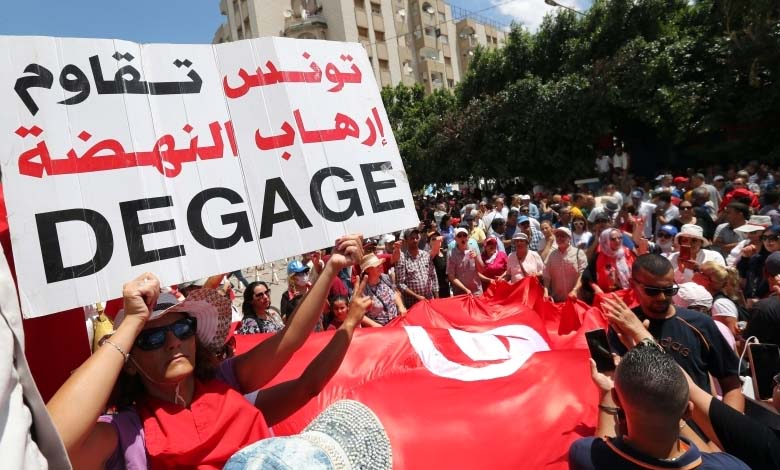The return of the Muslim Brotherhood… Signs of tension threaten Tunisia’s political stability

Tunisia’s political scene is witnessing a new escalation surrounding the activities of the Ennahdha movement, amid growing fears that some of its leaders are attempting to exploit the political vacuum to reposition themselves on both the domestic and international stages.
Indicators of these moves are evident in internal protests and the maneuvers of certain political exiles seeking to strengthen their influence on national decision-making.
-
Saied is determined to eliminate the Muslim Brotherhood in Tunisia… Details
-
Its effects are no less than bombing Palestinian hospitals… Saied speaks about the corruption of the Brotherhood in Tunisia
Sarhan Al-Nasri, president of the Alliance for Tunisia Party, revealed what he described as Ennahdha’s “dual strategy,” aimed at achieving political and security gains both domestically and abroad by pressuring the state and trying to control public opinion.
Al-Nasri added that the hunger strikes carried out by some Ennahdha members are merely a tactic to sway public opinion and blackmail state institutions by exploiting public sympathy toward political detainees.
He warned that the activities of the Brotherhood outside Tunisia pose a direct threat to national security, noting that some political figures operating from abroad are laying the groundwork for a behind-the-scenes return to power, relying on international media and political lobbying networks.
-
The Ennahdha Movement collapses… Crises hit the Muslim Brotherhood in Tunisia
-
Painful end for the Brotherhood in Tunisia… demands to dissolve Ennahdha movement after the arrest of Ghannouchi
He further explained that these maneuvers go beyond politics, extending to sensitive social issues, most notably irregular migration, as Tunisia becomes a gateway from Africa to Europe in the absence of a clear strategy to manage this critical file.
Al-Nasri stressed that Tunisia needs a truly political government capable of providing substantive solutions to the ongoing political and bureaucratic crises, rather than a merely symbolic administration managing the situation superficially since July 25, 2021.
He emphasized that the previous support for the July 25 process is insufficient unless it is translated into practical measures that ensure state stability and safeguard citizens’ rights.
-
The leaders of the Brotherhood in Tunisia before the judiciary.. The start of the investigations of “Deportation of Terrorist”
-
After the failure of the Brotherhood in Tunisia.. Is Kais Saied ending the legacy of Ennahdha and its corruption?
The current escalation reflects a continuing struggle among Tunisia’s political forces, with Ennahdha’s actions serving as a test of the state’s resilience and its ability to manage both internal and external challenges.
At the same time, Al-Nasri’s efforts and those of other national parties represent an attempt to redefine the political landscape and maintain a balance between civil rights and the protection of national security from political exploitation.












